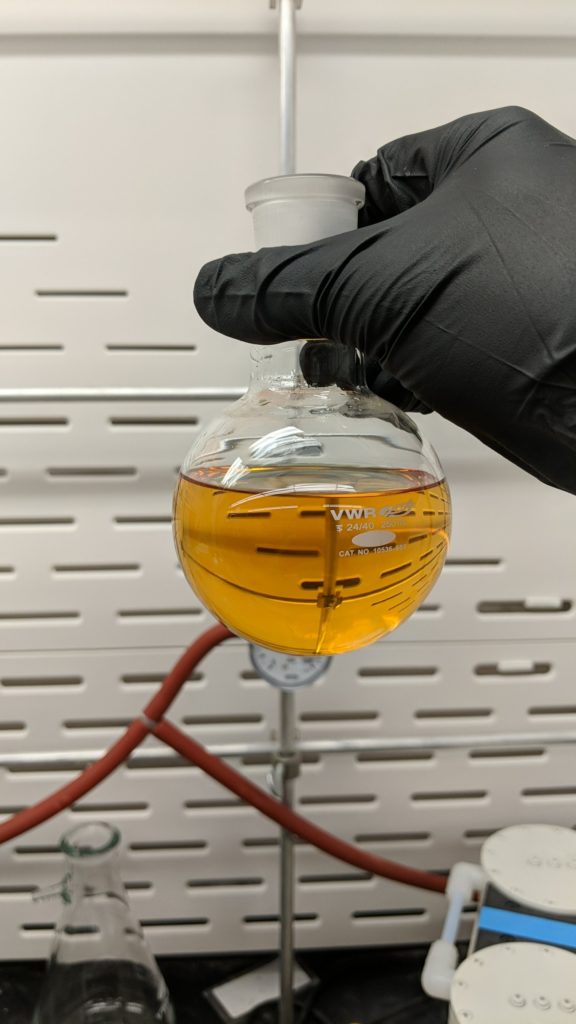Find a mentor. That’s Noah Bissonnette’s number one piece of advice.
Good mentors, like Bissonnette’s supervisor Philippe Nuhant, have helped the chemistry major reach his goals and inspired him to pursue new ones. He met Nuhant at Vertex Pharmaceuticals during his first co-op, where they’d share lunches and discuss everything from the challenge of a career in chemistry to Bissonnette’s life goals.
With Nuhant’s guidance, Bissonnette is making the decision to attend graduate school and pursue his PhD with confidence. The co-op may have ended, but the two still try to meet for coffee chats when they can.

Photo courtesy of Noah Bissonnette.
When it came to choosing a co-op, mentorship was an important factor. In his interview at Vertex, Bissonnette could tell that Nuhant would be not only a supervisor but someone who could help him grow as a young scientist. “I just really felt a connection with him,” he recalls. During interviews for his second co-op, Bissonnette had a similar intuition about Fedor Romanov, who would go on to be his supervisor at Celgene Corp.
This strategy of seeking out mentors has paid off. Both of his bosses trained him so well that by half-way through his second co-op, Bissonnette was working independently.
Bissonnette says that “[Before these co-ops] I never would’ve thought I … had developed those skills and the necessary lab work to say, okay, this is the reaction. I want to run this, I’m going to do it, and I’m confident in myself to do that.” Yet already in the first co-op, running experiments on his own was second nature.
The focus of the research in both co-ops was very similar. Bissonnette knew that he was interested in organic synthesis, so he sought out co-ops in medicinal chemistry. He loved being on “the forefront of discovery for small molecules.” He’d spend his days in the lab, working up the reactions that had been running overnight and preparing new ones for the next day.
Some days it was frustrating, and it seemed like nothing he did could improve the yield of the reactions. But then the eureka moment would come, and one small change would double the yield overnight. In those moments, previous months of hard work paid off. It was those moments that Bissonnette realized, “this is something that might get published.”
The end goal of doing research is publishing, but few undergraduate students have that opportunity. Bissonnette is one of those few, getting the chance to publish at both of his co-ops.
Aside from the accomplishment of publishing, Bissonnette points out that early familiarity with the whole research process makes the PhD process much less daunting. After all, it’s exactly what he’s already been doing, just on a bigger scale.
But when asked what his favorite thing about co-op has been, Bissonnette responds, “It’s not the publications or the experience … I think that advice is the most valuable thing that came from those co-ops.”

